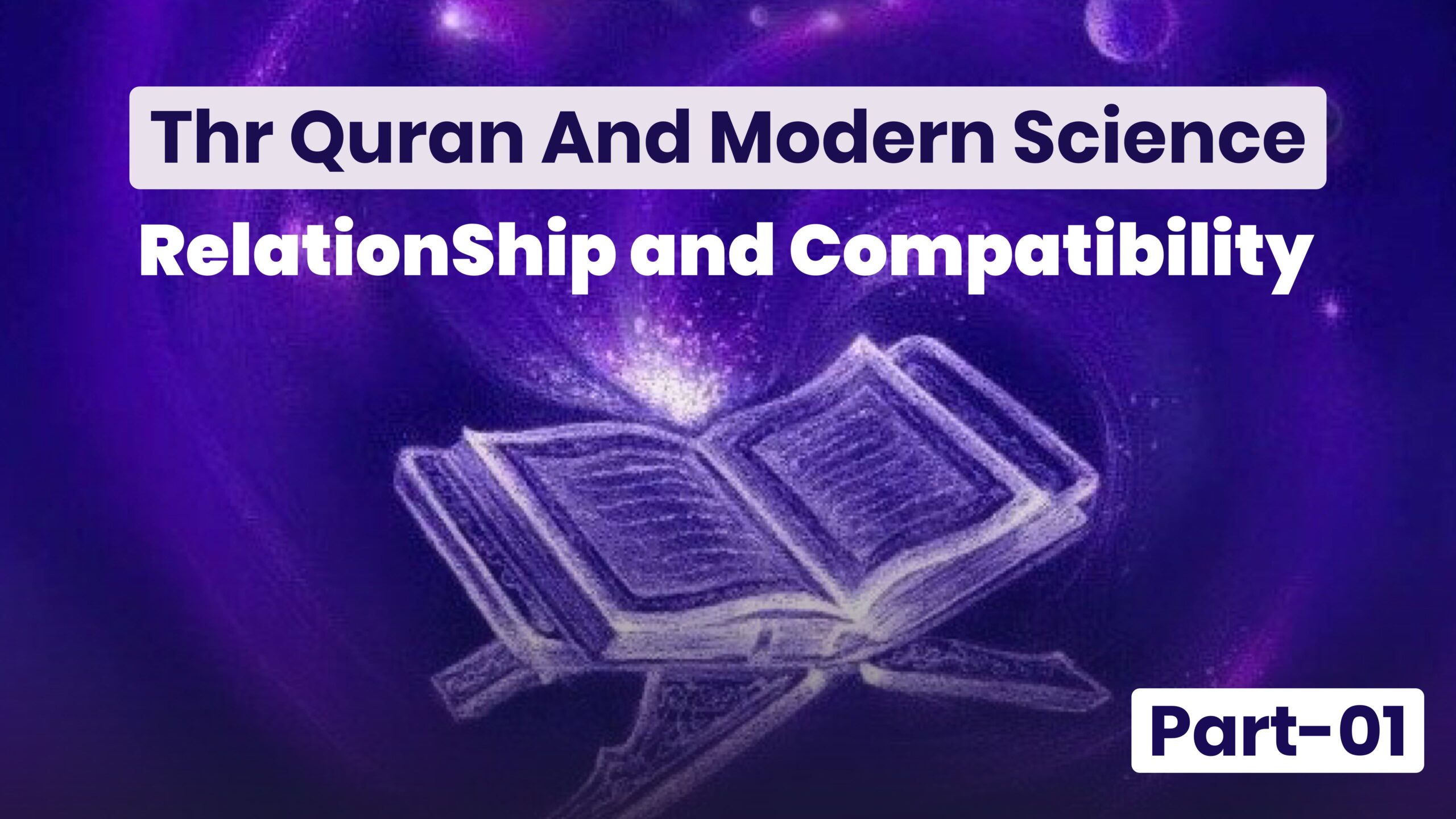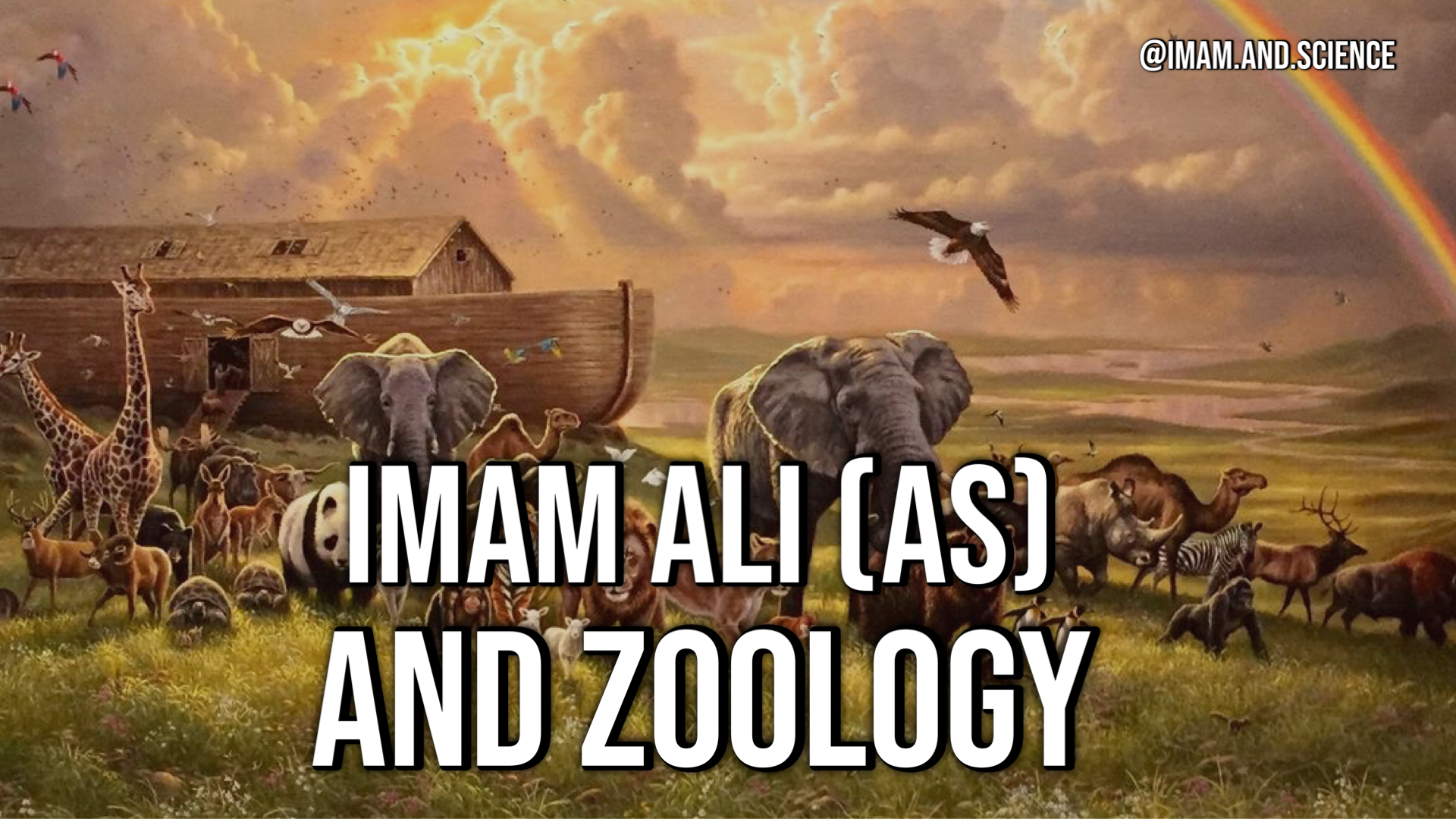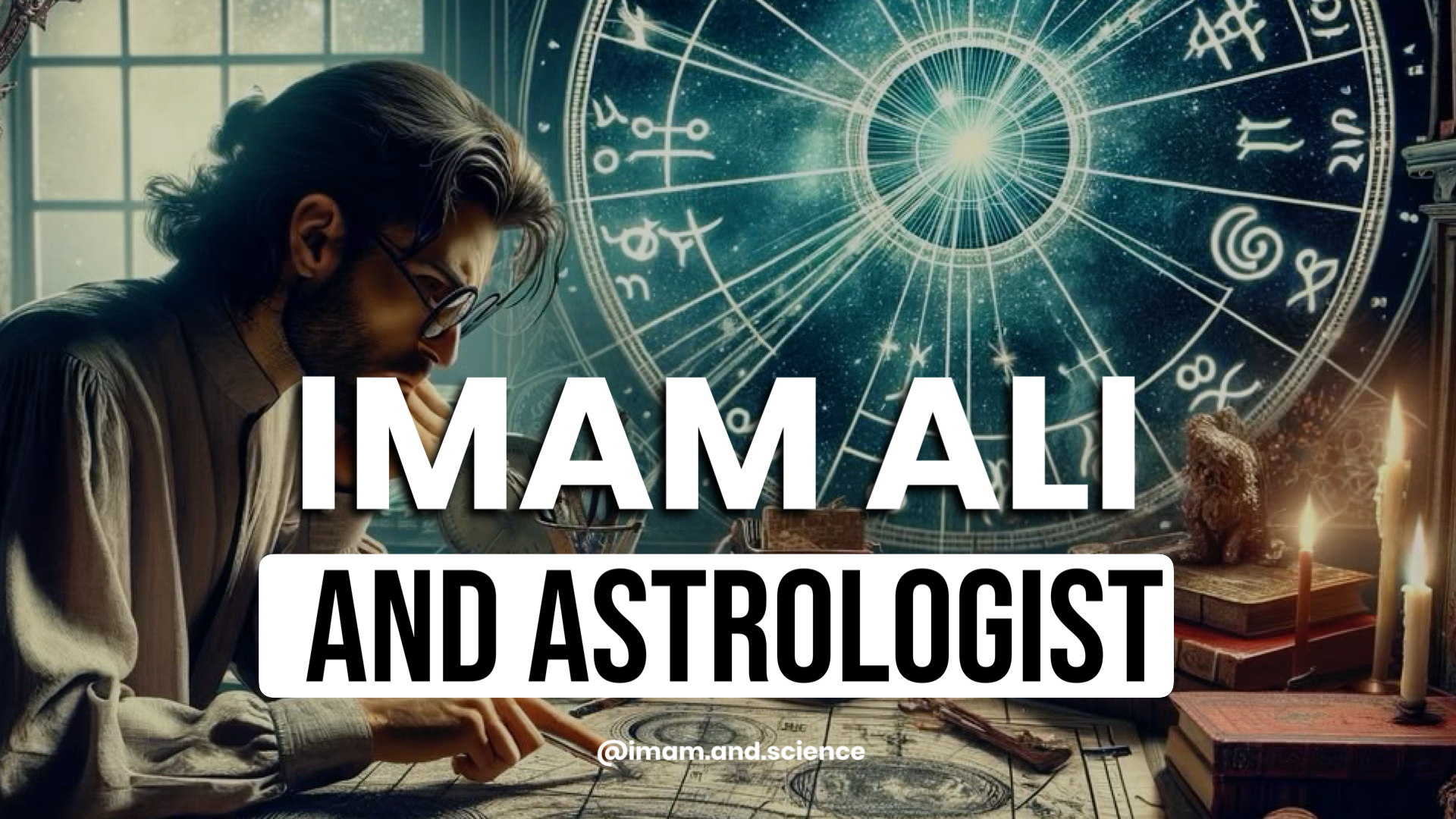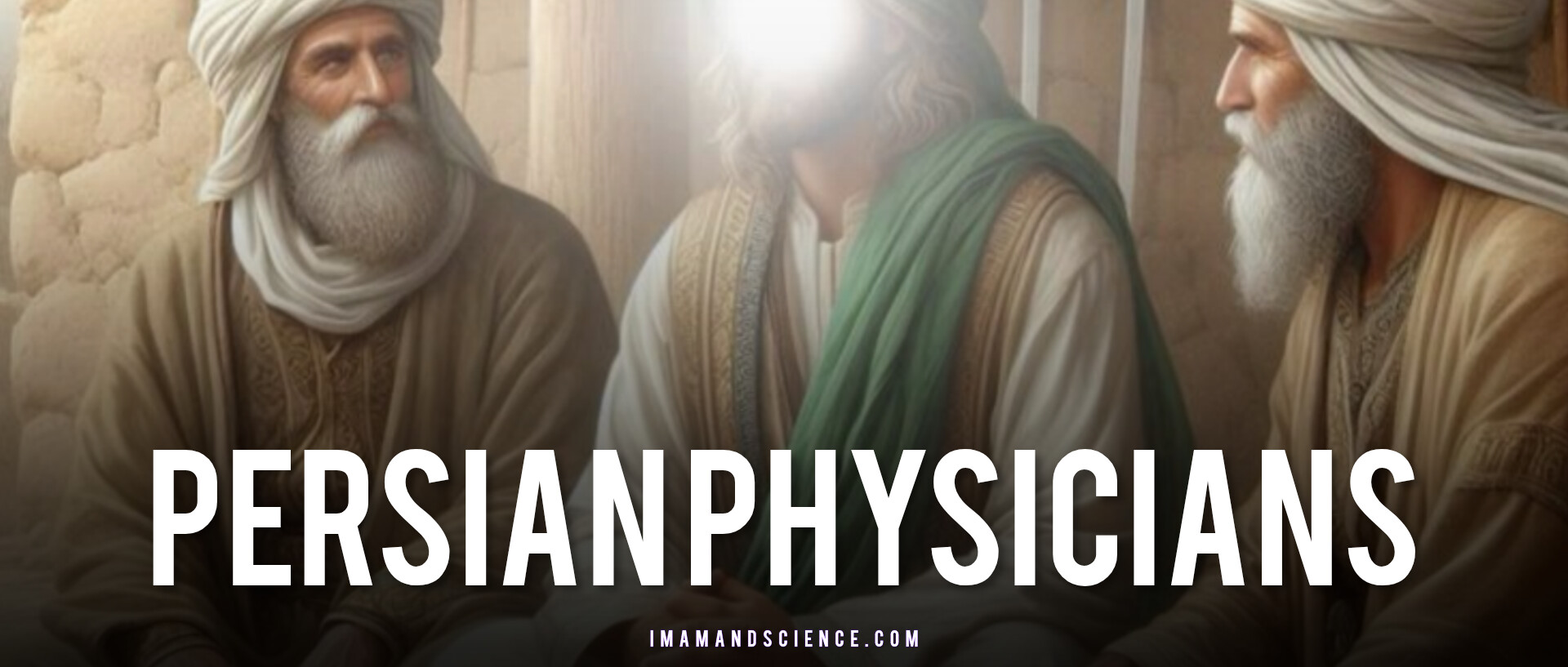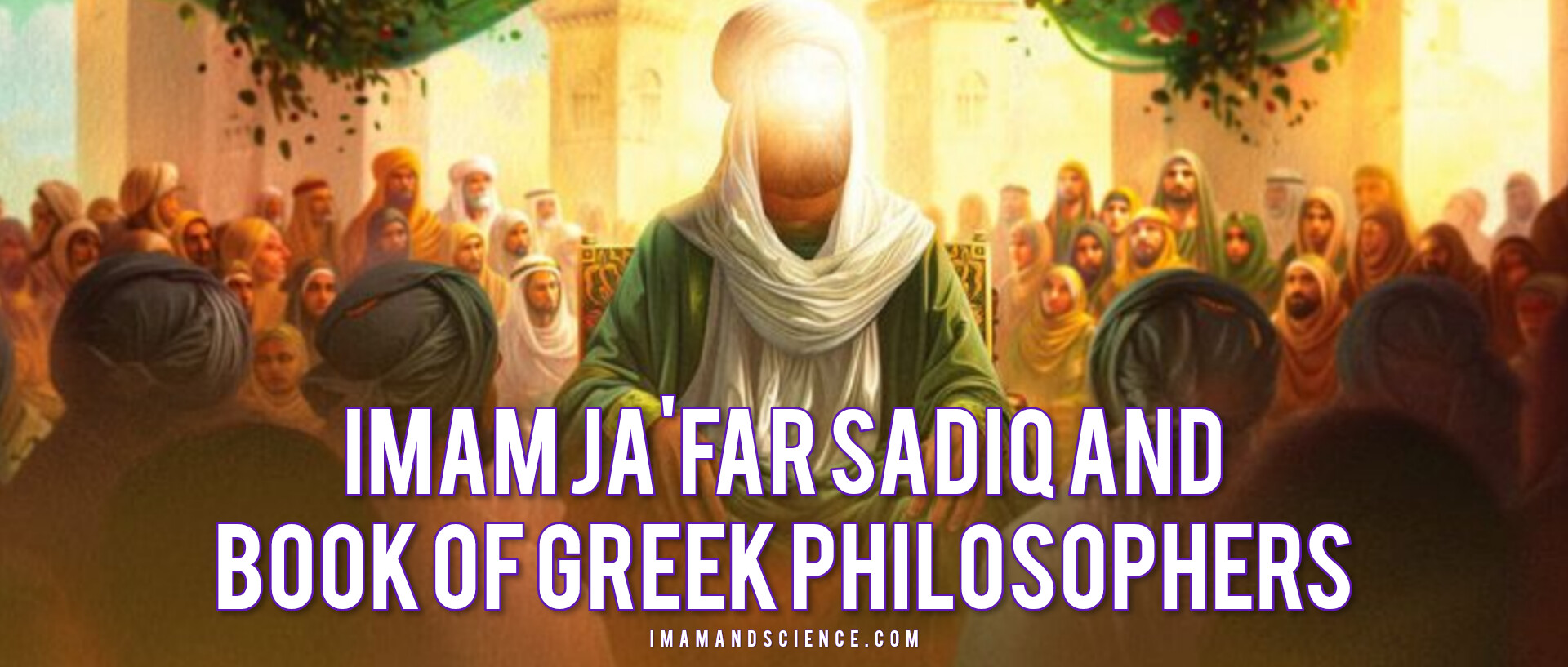The Quran and Modern Science: The Qur’an deserves evaluation from different points of view. One area for examination is the artistic and verbal beauty of the Qur’an and its style, which is neither poetry nor prose. It lacks the characteristics of poetry, often associated with giving free flight to the imagination and indulging in poetic exaggeration. Simultaneously, it does not conform to conventional prose, as it is imbued with a distinctive rhythm and melody. These qualities serve as means for the Qur’an to exert a powerful and unique spiritual attraction on all who encounter it.
Subsequently, the intellectual and scientific content of the Qur’an also demands examination. It is true that the Noble Qur’an does not aim to uncover and expound scientific phenomena, articulate all the natural motions and events within the system of being in accordance with a specific set of laws, or explain the properties and mode of operation of nature.
We shouldn’t anticipate the Qur’an to systematically discuss various branches of science, analyze topics linked to each branch, or resolve the diverse problems encountered in different research fields. The ability to experiment and conduct scientific research is inherent in human nature. Individuals can acquire the knowledge and arts they need through thought and reflection, making significant strides in gaining control over the forces of nature. However, concerns of this nature are foreign to a book primarily focused on moral edification.
The aim pursued by the Qur’an is the training of the human being to be conscious of their duties. It reinforces and accelerates spiritual ascension, along with all qualities, towards a state of true loftiness and dignity befitting a worthy human being.
In the initial verses of the Qur’an, which were revealed, we find praise and elevation of the pen, the acquisition of knowledge, and the study of nature as fundamental sources of cognition. A deep understanding of nature may extend to the borders of the supernatural realm. The inspiration derived from the Qur’an, coupled with the scientific movement initiated by Islam, led to the maturation of vibrant and engaged individuals uniquely endowed with knowledge and virtue. Islam’s perspective on science marked a significant development that paved the way for subsequent advancements.
Iqbal on the Pursuit of Knowledge:
Iqbal, the renowned Indo-Muslim thinker, asserts, “The birth of Islam, as I hope to demonstrate shortly to your satisfaction, signifies the emergence of the inductive intellect… The consistent appeal to reason and experience in the Qur’an, along with its emphasis on Nature and History as wellsprings of human knowledge, all represent different facets of the same idea of finality.
“Inner experience, according to the Qur’an, is merely one wellspring of human knowledge. The Qur’an identifies two other fountains of knowledge – Nature and History. It is in harnessing these fountains of knowledge that the essence of Islam shines at its brightest.” Reference: Iqbal, op. cit., pp. 101-102.
The Mysteries of Creation in Quran:
In the age when the Qur’an was revealed, known as the Age of Ignorance, creative and innovative thought, marked by the comprehensive spirit of science, was non-existent. No one was able to discern the mysteries of the vast, unknown universe.
When explicating the mysteries of creation, the Qur’an is clear and explicit whenever clarity and explicitness are desirable. In cases where the perception of complex truths was difficult for the people of that age, the Qur’an contented itself with making allusions. Over time, as the intellects and knowledge of human beings developed and the mysteries of nature came more clearly to the fore, these matters would become more easily comprehensible.
In expounding the contents of the Qur’an, Muslim scholars have continually put forward different views, as a result of their own research, investigations, reflections, and the vast spiritual richness of the Qur’an. Given this spiritual richness, it is inconceivable that such a great and infinite source of truth could have been produced solely by the talent and intellectual genius of human beings.
If something takes place by natural causation, people living either at the time of its first occurrence or in a later age should be able to produce something similar. However, if a phenomenon takes place outside the natural course of things, suspending natural laws and criteria, people will be unable at all times to attempt its replication.
In the case of the Qur’an, all conventional criteria and principles were violated; the entirety of the book represents a transcendence of all norms.
We have stated that the Qur’an refers allusively to scientific truths, almost as secondary matters serving as a preliminary to the attainment of a greater and more glorious goal. Therefore, we cannot regard it as a technical work of specialization that discusses matters only from the viewpoint of science.
The Qur’an refers to certain aspects of the life of the human being, the earth, the heavens, and the plants. Still, it would be entirely wrong to imagine that it does so with the intention of elucidating the natural sciences or resolving dubious points connected with them. The purpose of the Qur’an is rather to expound truths relevant to the spiritual life of the human being, exalting his being and conducive to his attaining a life of true happiness.
Furthermore, when expounding scientific truths, which might be expressed in different terminology in every age, the Qur’an does not use technical terms. Although scientific truths and the laws governing all phenomena enjoy stability and immutability, and although they have always existed and always will exist, scientific terminology might change from one age to the next and appear in a totally different form from before.
For Part-02: The Quran and Modern Science: Relationship and Compatibility Part-02
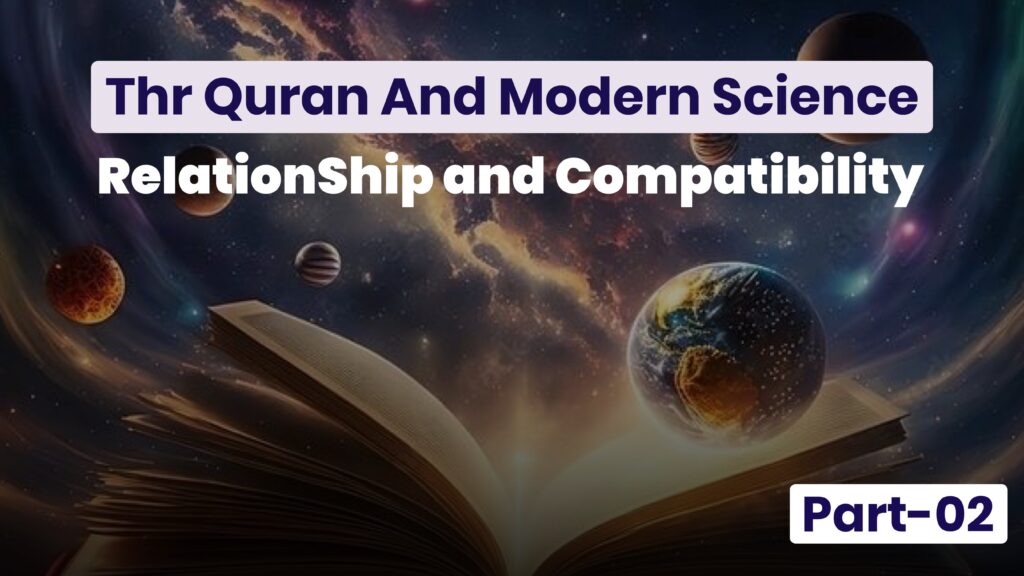
Dr. Bucaille’s on the Quran and Modern Science Compatibility:
Dr. Bucaille, the French scientist, expresses, “A crucial fact is that the Qur’an, while inviting us to cultivate science, itself contains many observations on natural phenomena and includes explanatory details that are seen to be in total agreement with modern scientific data. There is no equal to this in the Judeo-Christian Revelation.
“These scientific considerations, very specific to the Qur’an, greatly surprised me at first. Up until then, I had not thought it possible to find so many statements in a text compiled more than thirteen centuries ago referring to extremely diverse subjects, all of them totally in keeping with modern scientific knowledge… Thorough linguistic knowledge is not in itself sufficient to understand these verses from the Qur’an.
What is needed along with this is a highly diversified knowledge of science. A study such as the present one embraces many disciplines and is, in that sense, encyclopedic. As the questions raised are discussed, the variety of scientific knowledge essential to the understanding of certain verses of the Qur’an will become clear.
“The Qur’an does not aim at explaining certain laws governing the Universe, however; it has an absolutely basic religious objective. The descriptions of Divine Omnipotence are what principally incite the human being to reflect on the works of Creation. They are accompanied by references to facts accessible to human observation or to laws defined by God who presides over the organization of the universe in the sciences of nature.
“One part of these assertions is easily understood, but the meaning of the other can only be grasped if one has the essential scientific knowledge it requires…
“The hypothesis advanced by those who see Muhammad as the author of the Qur’an is quite untenable. How could a man, from being illiterate, become the most important author, in terms of literary merit, in the whole of Arabic literature? How could he then pronounce truths of a scientific nature that no other human being could possibly have developed at the time, and all this without once making the slightest error in his pronouncements on the subject?
“The ideas in this study are developed from a purely scientific point of view. They lead to the conclusion that it is inconceivable for a human being living in the seventh century AD to have made statements in the Qur’an on a great variety of subjects that do not belong to his period and for them to be in keeping with what was to be known only centuries later. For me, there can be no human explanation for the Qur’an.”
Reference: Bucaille, op. cit., pages 115-116, 119, 121-122, 125.
Quran on the Formation of the Solar System:
Let us briefly examine a few examples of this kind of topic. The best-known theory concerning the emergence of the solar system is Laplace’s hypothesis, some of whose views were later refuted by certain scientists as a result of further research.
Although there are other views concerning the factors that caused the emergence of the solar system, all scientific circles in the world today agree that the planets were originally composed of a mass of sodium gas: first, the heavens and the earth were joined together as a single entity, and then they separated from each other.
Centuries ago, the Qur’an alluded to this scientific theory. It says, when describing the creation of the heavens:
“Then God turned to the creation of the heavens (the planets), when they were but a smoky substance.”(41:11)
“Do the unbelievers not see that the heavens and the earth were joined together before We separated them, and that We brought all living things into existence from water? Why do they still not believe in God?” (21:30)
The well-known scientist Gamof says: “As we know, the sun came into being out of cumulative gases, and the sun then emitted a series of gases from itself that came into being after the separation from it of the planets. How did this burning mass of planetary matter come into being, and what forces were involved in its origination? Who assembled the materials needed for their construction?
“These are questions that confront us concerning the moon as well as every other planet in the solar system; they form the basis of all cosmological theories and are riddles that have preoccupied astronomers for centuries.”
Reference: Sarguzasht-i Zamin, page 43
James, an English scientist, writes: “Millions of centuries ago, a planet was passing in the vicinity of the sun and created an awesome tidal effect, so that matter separated from the sun in the shape of a long cigarette. Then this matter was divided: the weightier portion of the cigarette became the great planets, and the lighter portions brought the lesser planets into being.”
Reference: Nujum-i bi-tiliskup, page 83
The words used by the Qur’an in the verse quoted above, attributing the origin of the heavens to smoke (= gas), indicate the profundity with which this Divine book treats matters. All scientists agree that sodium is a gas mixed with ferrous materials, and the word smoke/gas may be taken to include both gas and iron. The word ‘smoke’ is, then, the most scientific expression that might be employed in the context.
Thus, the Qur’an unveils one of the great mysteries of nature: the separation of the planets from a huge object and then their separation from each other. Since at the time of the revelation of the Qur’an, the general level of knowledge and science was extremely low, does this not constitute proof of the heavenly nature of the Qur’an?
Does not the exposition of these matters by the Qur’an, in a manner conforming to quite recent discoveries made by astronomers, prove that the voice speaking in the Qur’an belongs to one who is acquainted with all the mysteries and truths of existence?
Also Read: “HOW MANY PLANETS EXIST?: EXPLORING FROM QURANIC INSIGHTS”
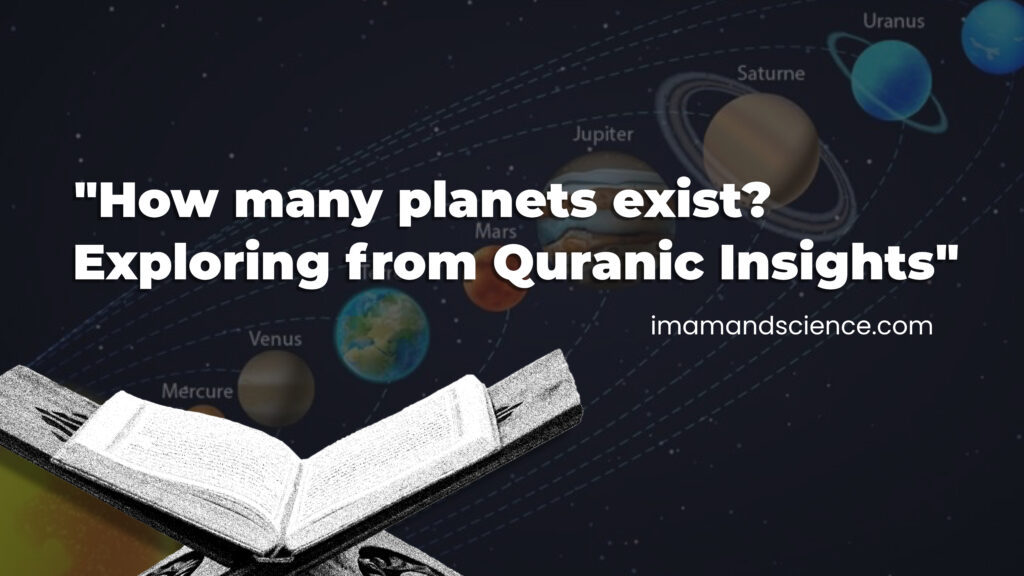
Dr. Bucaille Acknowledges Qur’an’s Scientific Correspondence on Universe Formation:
Dr. Bucaille openly admits the following: “At the earliest time it can provide us with, modern science has every reason to maintain that the Universe was formed of a gaseous mass principally composed of hydrogen and a certain amount of helium that was slowly rotating.
This nebula subsequently split up into multiple fragments with very large dimensions and masses—so large, in fact, that specialists in astrophysics can estimate their mass from 1 to 100 billion times the present mass of the Sun (the latter represents a mass that is over 300,000 times that of the Earth). These figures give an idea of the large size of the fragments of the primary gaseous mass that were to give birth to the galaxies.
“It must be noted, however, that the formation of the heavenly bodies and the Earth, as explained in verses 9 to 12, surah 41, required two phases. If we take the Sun and its sub-product, the Earth, as an example (the only one accessible to us), science informs us that their formation occurred by a process of condensation of the primary nebula and then their separation. This is exactly what the Qur’an expresses very clearly when it refers to the processes that produced fusion and subsequent separation starting from celestial ‘smoke.’ Hence, there is complete correspondence between the facts of the Qur’an and the facts of science.
“Such statements in the Qur’an concerning the Creation, which appeared nearly fourteen centuries ago, obviously do not lend themselves to a human explanation.”
Reference: Bucaille, op. cit., pp. 143-144, 147, 150.
Quranic Insights on the Universe’s Expansion:
Two, one of the most subtle problems in science concerns the expansion of the universe, its tendency to constantly extend its boundaries. This was something completely unknown to human beings until the last century. This mystery is, however, mentioned by the Qur’an in the following terms, which again bear witness to its remarkable profundity when discussing such matters:
“We created the heavens with Our strength and power, and constantly expand them.” (51:47)
This verse speaks in categorical terms of the expansion of the universe, its constellations, and galaxies, although not more than a century has passed since the discovery of the expansion of the universe.
The well-known scholar Baresht writes as follows: “Astronomers gradually became aware that certain regular motions were underway in the most distant galaxies that were barely visible to their telescopes. Those distant galaxies appear to be moving away both from the solar system and from each other.
“The regular flight of these galaxies, the closest of which is five hundred light-years away from us, is completely different from the placid motion of attraction exerted by bodies close to us. Those distant motions may have an effect on the curvature of the universe. The universe is not, then, in a state of immobility and balance; it is more like a soap bubble or a bellows in its constant expansion.” 6
Another scholar, John Pfeffer, writes as follows: “The universe is expanding. Wherever we look, we see the galaxies becoming more distant from each other; the distance between them is constantly growing. The most distant galaxies are becoming ever more removed from us, at the greatest conceivable speed. For example, while you have been reading this sentence, some of the galaxies will have become 250,000 miles farther removed from the earth.
“The parts of the universe are becoming farther removed from each other. It is as if a bullet had exploded in the air, the galaxies corresponding to the particles of the bullet as they hasten farther and farther apart. The theory of the big bang is based on precisely such a comparison.
“According to this theory, there was a time when all the matter in the universe was gathered together into a single dense mass. It was a substance suspended in space, with a volume hundreds of times greater than the sun, and resembled a bomb ready to explode. Then, about ten billion years ago, the explosion took place with a blinding flash, and the huge ball of matter became scattered in space. Its components are still being scattered forth in every direction, in a process of unceasing expansion – gases, rays, galaxies.”
Reference: Az kahkashan ta insan, p. 47.
The Qur’an’s Reflection on the Splendor and Order of the Universe:
The Glorious Qur’an directs people’s attention to the splendor inherent in the ordering of the universe and the complexity of its creation. It reminds them that the signs of the Creator’s workmanship are so numerous in the universe that, upon proper reflection, humans will inevitably come to believe in the eternal power of God, the source of all being. They will then bow humbly before His magnificence.
In Surah al-Imran, we find the following verses: “Certainly in the creation of the heavens and the earth and in the alternation of night and day, there are clear signs for the intelligent, those who at all times make remembrance of God and constantly reflect on the creation of the heavens and the earth and say:
“’Oh Creator! You have not created this expanse of splendor and magnificence in vain; You are pure and transcendent, so preserve us through Your favor from the torment of the fire.'”(3:191)
Thank You for Reading:
Thank you for reading! I hope you all have gained new information from this blog, and it has also increased your knowledge. All the information has been collected from the book “The Seal of the Prophets and His Message” by Sayyid Mujtaba Musavi Lari and rewritten by the Imam And Science blog writers. If you find any kind of mistake in this blog, please feel free to contact us!
Our Email: contactus@imamandscience.com
Our Instagram Account: @imam.and.science
You can also get in touch with us by leaving your comments. Also, don’t forget to share this blog with your friends and family to help us grow this platform. Remember me in your prayers. Allah hafiz.

